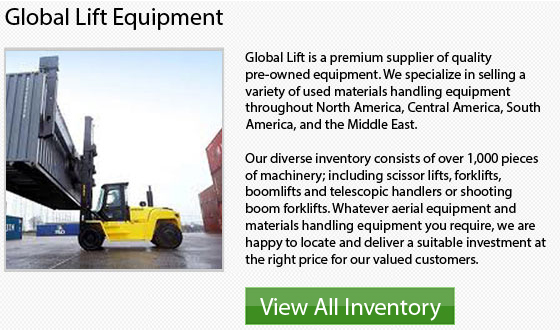
Lift truck operators are usually on the trucks more than 7 out of 8 hours per day in several forklift corporations. Operators will be asked to always unload and load trucks the whole day. A lot of of these operators do not need to check with supervisors very often, nor do they need to deal with paperwork. Occasionally they are doing the same task during the shift for the duration and they don't even have to move the forks to adapt to various loads. These operators usually find the forklift counterbalance sit-down models more comfortable and effective.
Maneuvering space depending on the location, several facilities have tons of room in which forklifts and machinery can operate in. In these circumstances, an engine powered or 4-wheel electric lift truck remains a major player in the warehousing fleet.
Then again, other facilities are crammed to capacity. These facilities could have staging areas and shipping departments which offer limited space for lift truck maneuverability. In this particular situation, a stand-up end control or a 3-wheel electric lift truck model might seem to be a better option.
You could determine how to pick the right truck and select the right tire depending on your setting and specific tasks you would be performing. Next is a short profile to show you the type of tire choices available.
Cushion Tire Trucks - The cushion tire has been specially designed for use on both concrete or asphalt surfaces. Normally, they are specified for indoor work inside warehouses, manufacturing facilities and distribution centers. Typically cushion tire forklifts are smaller compared to similar capacity pneumatic models; thus, they usually cost less. This makes their resale value much less too.
Pneumatic Tire Trucks - Pneumatic tire trucks could work indoors in addition to out on improved surfaces. These surfaces consist of hard-packed dirt or stones and blacktop. Rough terrain locations like for instance really potholed lots or plowed fields are not ideal. The trucks are equipped with a larger frame. Typically, pneumatic tire trucks are more expensive than comparative cushion tire models. When it comes to resale, normally the pneumatic models offer higher value. This is in part because of the large amount of maneuvering space they provide and their overall surface versatility.